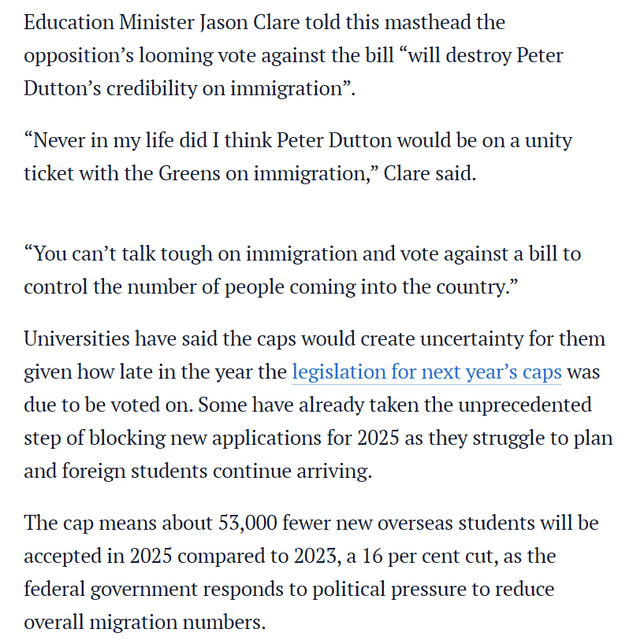Dutton Proposes Space for 40,000 Homes in First Year of Implementation
Opposition chief, Peter Dutton has broadcasted an ambitious plan aimed at liberating space for 40,000 residential units within the first year of its implementation, should the Coalition get elected. The proposal which was unveiled during his visit to a housing development situated in the marginal McEwen suburb of Melbourne, suggests a major decrease in immigration and international student influx. Mr. Dutton’s strategy entails reducing the tally of foreign students to 30,000 by 2026 and a reduction of 25 per cent in permanent immigration. The leader of the Liberal party expressed his aspiration to facilitate and support home ownership, thus revitalising the Australian dream for the younger generation, criticizing the Labor party for their non-supportive economic policies.
Mr. Dutton stressed upon the need to address and ultimately resolve the pressing issues of affordablility and accessibility of housing which were facing the young Australians. He drew attention to the fact that owning a home had become next to impossible for Australians due to skyrocketing rents, a problem which he attributed partially to upsurge in international student numbers by up to 65 per cent. The top Opposition member further explained that the student cap proposal could lead to a significant reduction in foreign student admissions, estimating a decrease of over 80,000 on an yearly basis.
More than just limiting the number of students from abroad, his plan also involves a tripling of the fee charged for student visa applications to a steep $5000 from its present $1600 at the Group of Eight universities. The proposed policy also envisages that the residual international students would face an escalated fee of $2500, up from the previous $1600 charge. Additionaly, a new charge of $2500 will be implemented on students wishing to switch respective educational providers.
Mr. Dutton maintained that although international students prove to be a profitable source for universities, he was of the opinion that Australia’s present situation, which stands at 42 international students for one building approval, was not credible in the midst of a housing crisis. This restrictive percentage would apply predominantly to public universities, with a consultation procedure agreed to be employed for regional campuses to prevent them from suffering negative repercussions.
An alternate proposition was put forward by the Student Accommodation Council which advocated for the universities to uphold a guarantee of accommodation provision for first-year students instead of executing a slash in student numbers. Dutton also placed blame on increased levels of immigration for elevating housing expenses, putting stress on market rentals and further complicating the process of securing a first home.
In response to this issue, Dutton asserts a 25 per cent cut in immigration. He is adamant about how the government has allowed a million people immigration over the past couple of years, and stresses ‘We stand firm on the idea of reduction in immigration in a bid to prioritize Australians. Our primary aim is to assist Australians to own homes.’
However, shadow housing minister Michael Sukkar has evaded specifying a target for net overseas migration, pledging a more comprehensive statement as the election period drew near. Prior to this, Mr. Dutton had proclaimed that the Coalition intended to impose stricter regulation on foreign ownership. As an initiative to combat the housing crisis, he also put forward a system to aid young citizens procure their first home, by permitting access to $50,000 from their respective superannuation accounts.
Furthering his efforts to alleviate the housing crisis, Mr. Dutton proposed a motion for deregistering the CFMEU; a union he alleges has been the cause for ‘doubling the cost of housing’ in Australia through their influence over industrial relations.



